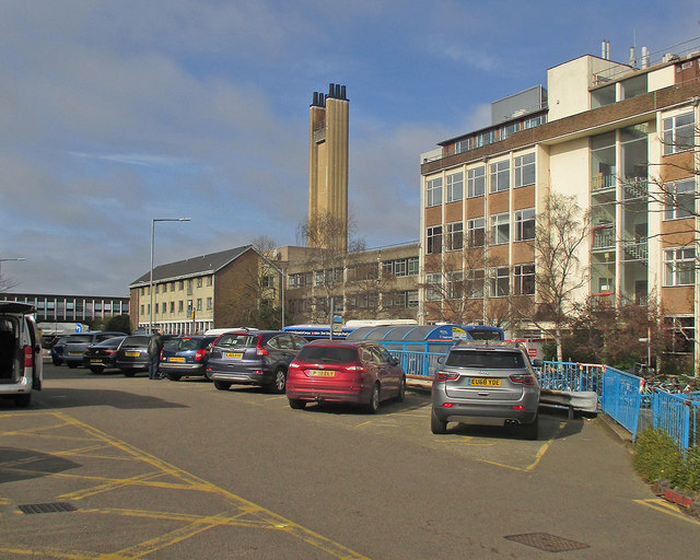Cambridge Covid-19 testing Centre hits 3 million test milestone
The Centre, at the University’s Anne McLaren Building, began processing tests in April 2020 after it was rapidly repurposed

The Cambridge Covid-19 testing centre has now reached a milestone of 3 million tests processed, as part of its “extensive response” to the coronavirus pandemic, according to a statement released by the University.
The Centre is situated on the Cambridge Biomedical Campus in the Anne McLaren Building, which was rapidly repurposed in five weeks with labs and “innovative robots” to carry out testing at the beginning of the pandemic - a process that would usually take six months.
Professor Andy Neely, Pro-Vice Chancellor for Enterprise and Business Relations, described the “dedication and determination” of the Centre’s workers and volunteers who were “instrumental in its launch” and who have “driven its innovation”, which he says is “inspiring.”
The creation of the Centre, which processes asymptomatic and symptomatic testing at the University, is the result of a collaboration between the University and two major pharmaceutical partners - GlaxoSmithKline (GSK) and AstraZeneca.
Soon after its launch, the testing centre was brought under the government’s national diagnostic lab network - the largest in UK history - as part of its efforts to bolster the UK’s testing capacity in the early months of the pandemic.
The University teamed up with the two pharmaceutical partners to combine its leading interdisciplinary research with the companies’ drug discovery and technology research expertise.
The Centre surpassed the milestone of two million tests at the end of December last year, in the first eight months of its operation, which was described as a “tremendous achievement”.
Hundreds of volunteers, including researchers from the University, were part of the team who “scale[d] up the diagnostic process at an unprecedented speed” during Phase 1 of the project, working “tirelessly” to optimise testing, the University’s statement reads.
In its second phase, the programme has focused on continuing to optimise “high-throughput” testing, using “world-class skills, knowledge and exceptional research”, as it has embarked on a new collaboration with Charles River Laboratories.
Professor Andy Neely said that volunteers’ efforts in the fight against COVID-19 had been “critical”: “The new ways of thinking and working developed have helped strengthen the UK’s diagnostics capability and will be key to managing events of this kind in the future, should they occur.”
 News / Clare Hall spent over £500k opposing busway 24 December 2025
News / Clare Hall spent over £500k opposing busway 24 December 2025 News / Caius mourns its tree-mendous loss23 December 2025
News / Caius mourns its tree-mendous loss23 December 2025 Comment / The ‘class’ of Cambridge24 December 2025
Comment / The ‘class’ of Cambridge24 December 2025 Comment / Yes, I’m brown – but I have more important things to say22 December 2025
Comment / Yes, I’m brown – but I have more important things to say22 December 2025 Interviews / Politics, your own way: Tilly Middlehurst on speaking out21 December 2025
Interviews / Politics, your own way: Tilly Middlehurst on speaking out21 December 2025











